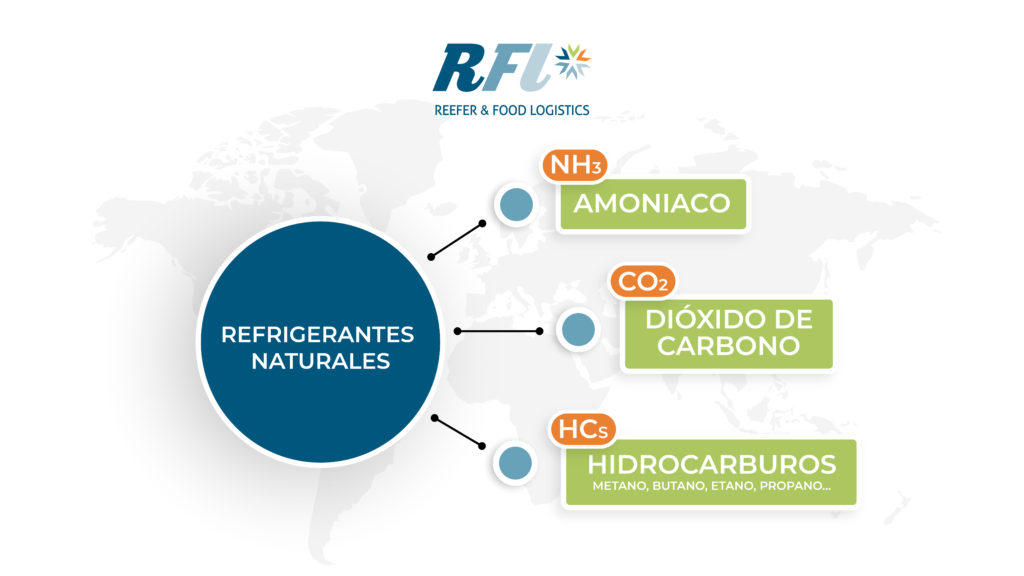Refrigerants are widely used in the food and beverage industry, both for production, storage and transport. Natural refrigerants are chemical substances produced by biochemical processes in nature. One of their advantages is that they make an almost negligible contribution to global warming, which reduces their effects on the ozone layer.
Some experts consider natural refrigerants to be the ultimate solution to the environmental problems caused by synthetic refrigerants. In fact, these products were used before 1950 and are now making a comeback thanks to increased climate awareness among companies and production sectors.
At RFL Cargo, experts in customised logistics solutions, we have specific services for temperature-controlled transport and we closely follow all these trends that seek to combine efficiency and the environment.
The most common natural refrigerants
The most common natural refrigerants used today are:
- Ammonia. It is used for high power industrial applications, in thermal storage systems and in commercial and industrial refrigeration for transport. It is fairly inexpensive and has no risk of obsolescence.
- Carbon dioxide. Also very common in transport refrigeration, compact commercial and industrial systems. Carbon dioxide has low toxicity (only dangerous in high concentrations) and offers high performance with low energy consumption.
- Hydrocarbons (methane, butane, ethane, propane…). They are widely used in the modern refrigeration sector because of their environmentally friendly properties.

Natural refrigerants are increasingly used.
Experts and industry are currently discussing the main energy-saving technologies available to optimise their use and make these systems equally efficient from a refrigeration point of view at affordable operating costs. However, in the use of the most commonly used natural refrigerants, the flammability of propane and the high pressures in CO2 cycles must also be taken into account. A number of particularities and precautions must be taken to respect safety standards.
The refrigeration industry, always essential
Since the outbreak of the COVID-19 crisis and the subsequent confinement, the cold chain has been essential for food distribution and hospital operations, among others. Now, in the current phase, its role in the conservation and distribution of vaccines will also be key throughout the world. A great challenge lies ahead.
